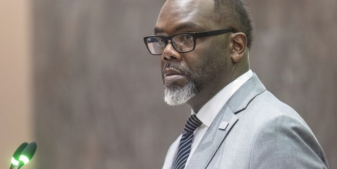Chicago Mayor Brandon Johnson has proposed a new sports betting tax on Illinois operators.
Johnson’s 2026 budget includes a 10.25% local tax on sports betting revenue on top of the state’s levy, which his office released last week.
The budget, worth over $16 billion, would take effect on New Year’s Day 2026 and the sports betting tax aims to help close a $1.15 billion deficit.
In his introduction to the budget, Johnson wrote that the overall spending plan closes the gap “without increasing the city’s property tax levy or relying on regressive revenue measures.”
“Instead, it advances a balanced approach rooted in fairness: generating progressive revenue from those with the greatest capacity to contribute and delivering savings through government modernisation and efficiency initiatives.”
The tax hike is estimated to generate as much as $26 million in revenue for the local government and the proposal doesn’t come as a complete surprise to residents, following the Chicago Financial Future Task Force’s suggestion earlier this year of a per-wager surcharge for bets made in the city.
Illinois has led the way in tax increases related to sports betting in the last couple of years. In 2024, former Governor JB Pritzker changed the industry’s tax structure for his 2025 budget.
Instead of the base 15% tax on sports betting revenue, a tiered system ranging from 20% to 40% was introduced and the tax rate is determined by the revenue generated by each sportsbook.
It resulted in more than $260 million to the industry and Pritzker is a man who knows a few things about gambling, fresh off winning more than $1.4 million in Las Vegas.
The new budget includes a per-wager surcharge for sportsbooks. Operators have to pay 25% per wager on the first 20 million and 50 cents each after that.
To put that into perspective, there were 370 million bets placed in Illinois throughout 2024 with top dogs DraftKings and FanDuel taking more than 150 million each.

